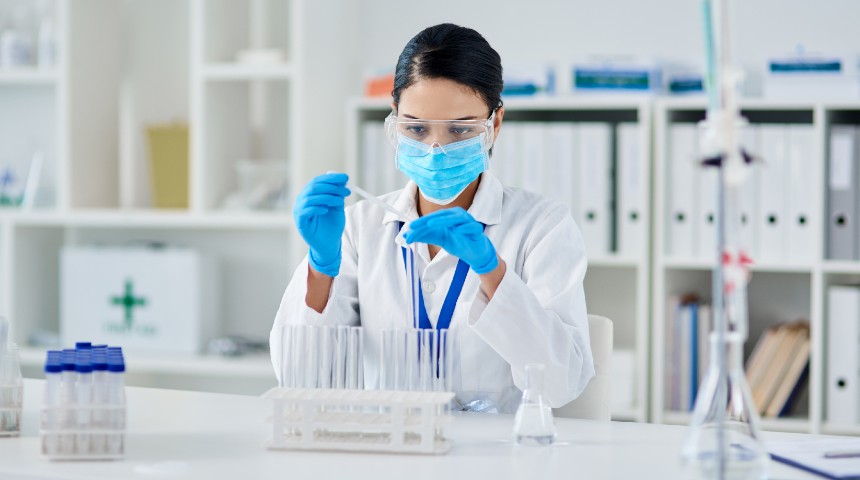
Have an interest in science and health? Why not consider a career in biomedical science and make a difference.
Are you captivated by human biology, enjoy scientific experiments and thinking outside of the box?Why not consider a career in biomedical science – where your passion for science and health has the potential to make a real difference to your community.
What does a biomedical scientist do?
Biomedical scientists are responsible for better understanding, diagnosing, treating and preventing human diseases. They not only study the human body and gain knowledge of how it works, but are responsible for finding new ways to cure or treat diseases.
Biomedical scientists tend to work in laboratories, where a typical day will see them carrying out experiments and investigating samples using sophisticated lab equipment and computers.
Head of Discipline of Medical, Molecular and Forensic Sciences at Murdoch University, Associate Professor Wayne Greene, says that day-to-day tasks may include testing the effectiveness of various treatments by studying cells, tissues, bacteria, viruses and cellular molecules such as deoxyribonucleic acid (DNA) from patients.
“Additionally, scientists may analyse cultures grown from samples, identify blood groups, ensure records are accurately maintained and interpret results.”
They may also be involved in research to help diagnose, monitor and manage new and emerging diseases, or could take up the important task of investigating pre-existing conditions such as cancer or diabetes.
“Most importantly, their research may go towards the development of new treatments, diagnostic tests or providing insights to the healthcare industry,” says Assoc. Prof. Greene.
What skills would help in a career in biomedical science?
It doesn’t take just one skillset to have a successful career in biomedicine, but it does help to have the following:
What you will learn as a biomedical science student
As a biomedicine student at Murdoch, you’ll learn from leading researchers about the underlying principles and concepts of biomedical science. In doing so, you’ll gain an understanding of individual specialised areas including cell biology, physiology, microbiology, immunology, pathology, biochemistry and pharmacology.
“You will gain hands-on experimental and technical skills by performing and analysing the outcomes of practical laboratory investigations at the Murdoch health precinct, which includes multiple hospitals and medical research institute facilities,” says Assoc. Prof. Greene.
This combined knowledge and experience will help you discover which areas within biomedicine you wish to specialise in.
Where can a job in biomedical science can take you?
Assoc. Prof. Greene, says although typically a biomedical scientist will work in a medical science laboratory there is no limit as to where a career in biomedical science can take you, including jobs outside the lab.
“Once you graduate, career opportunities may be found across universities, hospitals, government, health agencies, medical biotechnology companies and biomedical scientific supply companies.
“There is also the prospect of obtaining a job in the business field such as sales, marketing or as a consultant,” says Assoc. Prof. Greene.
If further study is on your radar, Biomedical Science is an important foundation for related postgraduate courses such as medicine, pharmacy, dentistry, education, systems medicine, clinical embryology and veterinary medicine.
How to prepare for your biomedical science career while you’re at uni
You can get a head start on your CV while you’re still studying. You might like to:
The future of biomedicine
Assoc. Prof. Greene says biomedical science is an exciting and vitally important field at the forefront of 21st century scientific progress.
“New discoveries in key areas such as cancer therapy, drug development, stem cell technology, gene editing and medical diagnostics are revealed virtually every week.
“A career in biomedicine is very rewarding and offers many exciting possibilities with the potential to make a real difference to the lives of many people,” says Assoc. Prof. Greene.